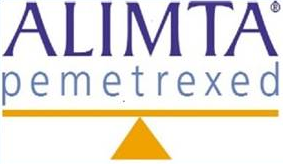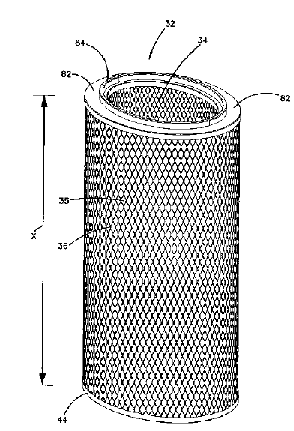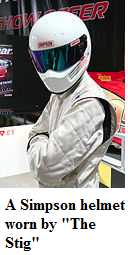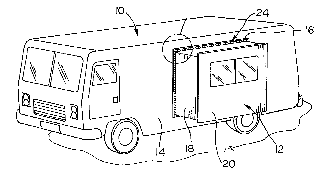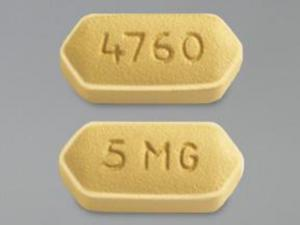Indianapolis, Indiana – In conjunction with non-Indiana co-counsel, an Indiana patent attorney for Eli Lilly and Company, Eli Lilly Export S.A. (collectively, “Lilly”) and Acrux DDS Pty Ltd., sued in the Southern District of Indiana alleging that Lupin Ltd. of Mubai, India and Lupin Pharmaceuticals, Inc. of Baltimore, Maryland infringed on various of Plaintiffs’ patents, including U.S. Patent Nos. 8,419,307; 8,177,449; 8,435,944; 8,807,861; and 8,993,520. These patents have been issued by the U.S. Patent Office.
Lilly is engaged in the business of research, development, manufacture and sale of

pharmaceutical products worldwide. Acrux is engaged in the development and commercialization of pharmaceutical products. They sell their products worldwide. The Lupin Defendants are generic pharmaceutical companies that develop, manufacture, market, and distribute generic pharmaceutical products for sale.
At issue in this patent litigation are U.S. Patent Nos. 8,419,307; 8,177,449; 8,435,944; 8,807,861; and 8,993,520. These patents are alleged to cover a testosterone metered transdermal solution used to treat males for conditions associated with a deficiency or absence of endogenous testosterone. This pharmaceutical product, trademarked as Axiron®, is marketed and sold by Lilly.
Plaintiffs contend that the Abbreviated New Drug Application No. 208061 submitted in the name of Lupin Ltd. to the U.S. Food and Drug Administration for approval to market a generic version of Lilly’s Axiron product constitutes patent infringement.
In its complaint, filed by an Indiana patent lawyer, Lilly alleges the following counts:
• Count I for Patent Infringement: Direct Infringement of U.S. Patent No. 8,419,307
• Count II for Patent Infringement: Inducement To Infringe U.S. Patent No. 8,419,307
• Count III for Patent Infringement: Contributory Infringement of U.S. Patent No. 8,419,307
• Count IV for Patent Infringement: Direct Infringement of U.S. Patent No. 8,177,449
• Count V for Patent Infringement: Inducement To Infringe U.S. Patent No. 8,177,449
• Count VI for Patent Infringement: Contributory Infringement of U.S. Patent No. 8,177,449
• Count VII for Patent Infringement: Direct Infringement of U.S. Patent No. 8,435,944
• Count VIII for Patent Infringement: Inducement To Infringe U.S. Patent No. 8,435,944
• Count IX for Patent Infringement: Contributory Infringement of U.S. Patent No. 8,435,944
• Count X for Patent Infringement: Direct Infringement of U.S. Patent No. 8,807,861
• Count XI for Patent Infringement: Inducement To Infringe U.S. Patent No. 8,807,861
• Count XII for Patent Infringement: Contributory Infringement of U.S. Patent No. 8,807,861
• Count XIII for Patent Infringement: Direct Infringement of U.S. Patent No. 8,993,520
• Count XIV for Patent Infringement: Inducement To Infringe U.S. Patent No. 8,993,520
• Count XV for Patent Infringement: Contributory Infringement of U.S. Patent No. 8,993,520
• Count XVI for Declaratory Judgment: Infringement of U.S. Patent No. 8,419,307
• Count XVII for Declaratory Judgment: Infringement of U.S. Patent No. 8,177,449
• Count XVIII for Declaratory Judgment: Infringement of U.S. Patent No. 8,435,944
• Count XIX for Declaratory Judgment: Infringement of U.S. Patent No. 8,807,861
• Count XX for Declaratory Judgment: Infringement of U.S. Patent No. 8,993,520
Plaintiffs ask the court for judgment in their favor as follows:
a) United States Patent Nos. 8,419,307; 8,177,449; 8,435,944; 8,807,861; and 8,993,520 are valid and enforceable;
b) Under 35 U.S.C. § 271(e)(2)(A), Defendants infringed United States Patent Nos. 8,419,307; 8,177,449; 8,435,944; 8,807,861; and 8,993,520 by submitting ANDA No. 208061 to the FDA to obtain approval to commercially manufacture, use, offer for sale, sell, or import into the United States Lupin’s Generic Product prior to expiration of said patents;
c) Defendants’ threatened acts of commercial manufacture, use, offer for sale, or sale in, or importation into, the United States of Lupin’s Generic Product prior to the expiration of United States Patent Nos. 8,419,307; 8,177,449; 8,435,944; 8,807,861; and 8,993,520 would constitute infringement of said patents;
d) The effective date of any FDA approval of Lupin’s Generic Product shall be no earlier than the latest of the expiration date of United States Patent Nos. 8,419,307; 8,177,449; 8,435,944; 8,807,861; and 8,993,520 and any additional periods of exclusivity, in accordance with 35 U.S.C. § 271(e)(4)(A)
e) Defendants, and all persons acting in concert with Defendants, shall be enjoined from commercially manufacturing, using, offering for sale, or selling Lupin’s Generic Product within the United States, or importing Lupin’s Generic Product into the United States, until the expiration of United States Patent Nos. 8,419,307; 8,177,449; 8,435,944; 8,807,861; and 8,993,520 in accordance with 35 U.S.C. §§ 271(e)(4)(B) and 283;) This is an exceptional case and Plaintiffs should be awarded their costs, expenses, and disbursements in this action, including reasonable attorney fees, pursuant to 35 U.S.C. §§ 285 and 271(e)(4); and
g) Plaintiffs are entitled to any further appropriate relief under 35 U.S.C.§ 271(e)(4).
The case was assigned to Judge Sarah Evans Barker and Magistrate Judge Debra McVicker Lynch in the Southern District of Indiana and assigned Case No. 1:15-cv-01047-SEB-DML.
Practice Tip: Information on Lilly’s lawsuit against the Lupin Defendants, which asserts patent infringement relating to the drug Effient, can be found here.
Continue reading
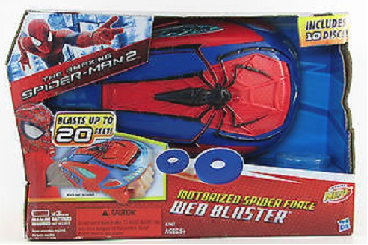
 Indiana Intellectual Property Law News
Indiana Intellectual Property Law News


